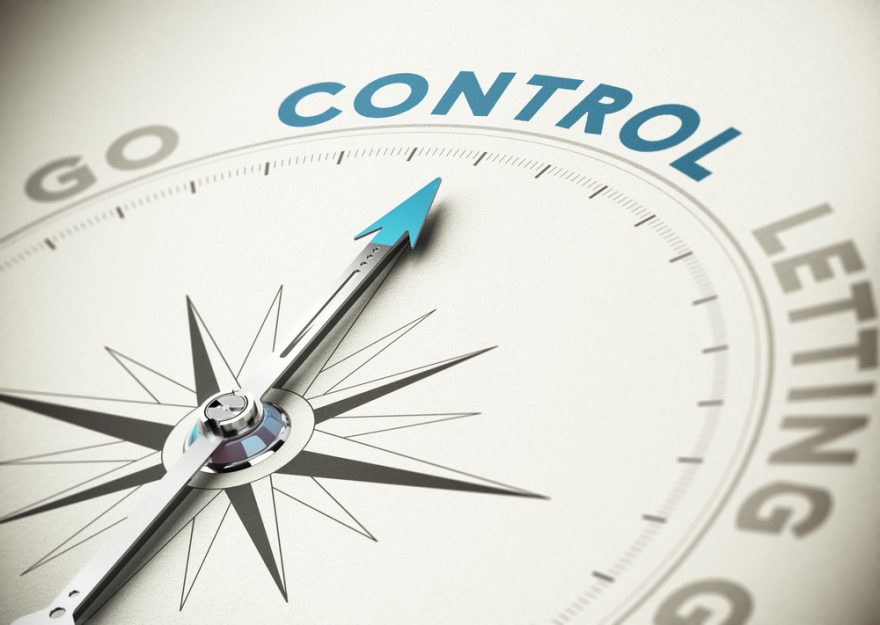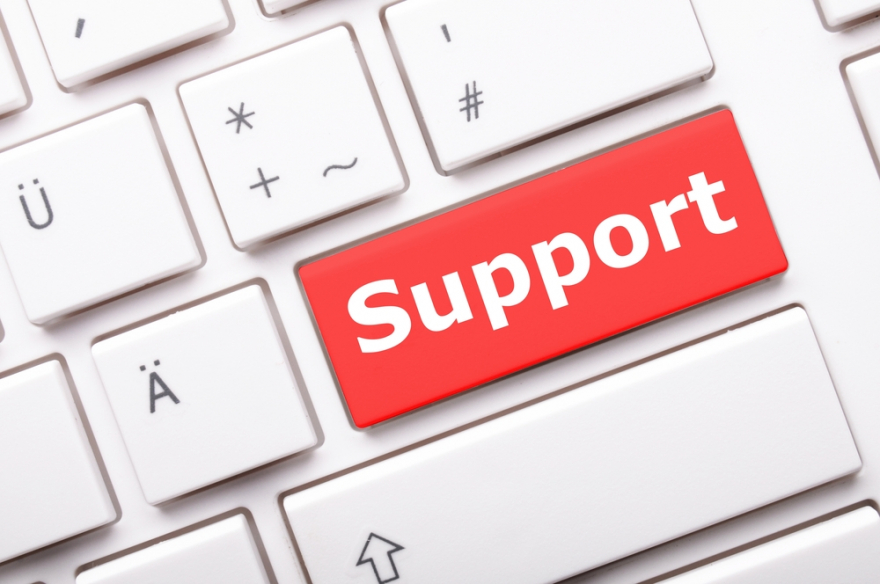|
Dealing With Upheaval That is Outside Your Control
Rev. Dr. Kitty Boitnott, NBCT, RScP
Heart-Centered Career Transition and Job Search Coach | Stress Management Coaching
This is the third and final article in a continuing series on the effects of upheaval in our lives. I covered the mental and physical effects in the first two posts. This week I want to offer some strategies that you might use to deal with upheaval when it happens.
You can deal with--and even prepare for--upheaval in your life.
Being prepared helps to mitigate the stress and anxiety that naturally goes with significant disruptions in your life.
Take a look at this five-step process:
5. Mind, body, and health
The steps aren't difficult to implement, but they do need a little work on your part to put in place. It might help to consider what each step entails. So, let's get started.
Acceptance

Life is going to throw you curveballs every so often. That is just the nature of, well, life! So there's no reason to pretend otherwise.
You have probably already experienced some upheaval sometime in your past. Perhaps you got sick unexpectedly. Or maybe your turmoil was caused by a contentious divorce. The thing is, you are guaranteed to experience another upheaval at some point in your future if you live long enough.
Acceptance of this fact can be difficult because we don't like to think things are going to go haywire, do we? We prefer to believe that things will stay the status quo. We also want to be in control. And when a significant disruption comes along, we are reminded how little control we have.
Human beings are naturally optimistic, however. If they weren't, they would never go out and try new things. They wouldn't bother to create new inventions to try to make life easier and more comfortable.
But, as life would have it, sometimes things do go wrong. So it would help if you made a conscious choice to accept that fact right now. Then, when something wrong does happen, instead of wasting time complaining about it or fretting over it, you can work on accepting it so you can move on.
Now please understand. Acceptance doesn't mean the same thing as embracing defeat or giving in to the idea that you are beaten down. Consider these quick facts about acceptance:
Acceptance Must Come First
The rest of this process is pointless if you can't accept the reality of what's going on around you. If you live in a wildfire-prone area, you should accept the possibility that someday your house might burn down. If you don't, you're never going to take the necessary steps to plan what to do in the event a wildfire breaks out. Millions of people are learning this lesson the hard way out on the West Coast, even as I write this message.
Denial is not only costly, but it can have terrifying consequences. Once you accept the possibility that the house might burn down, you can plan for that contingency. You can be prepared, just in case. Remember the motto, "Prepare for the worst but hope for the best?" That's the gist of this concept.
Acceptance is Not Agreement
You can accept a situation without liking it. Let's be honest. Sometimes life isn't fair. That's not just a cliché. Sadly, it is too true.
But when a tragedy hits you, you do need to accept the situation regardless of whether you think it is fair or not. Accepting the fact of a situation will allow you to move on with your life.
Acceptance is a Conscious Decision That You Have to Make
You have to decide that you're going to accept the situation. Acceptance is always intentional. It won't happen unless you have a conversation with yourself where you say, "This is the situation I have to deal with. Now I need to figure out what to do about it."
Acceptance is just the first step, however. Just because you've accepted the situation doesn't mean you sit down and do nothing. Acceptance is not the end. It is just the beginning of this process.
Planning

The truth is you can't plan for every bad thing that might happen to you. But you should think about what you would do if something terrible happened. If your spouse died, do you have insurance so your family will be supported? If a parent becomes ill and lives a thousand miles away, do you have an emergency fund that will allow you to travel to them?
Planning is part of preparedness. It's why we keep fire extinguishers in our kitchens and airbags in our cars. It's why we create savings accounts for "rainy days." It's why we buy life insurance policies and keep our health insurance premiums paid up.
Practice Using Different Perspectives
Try to look at the problem from different angles. You might not be seeing the whole picture from where you are because you are too close to the situation. Take a step back. Only when you think you have a good handle on the problem are you ready to move on to the next step.
Figure Out What You Would Do
No one else is going to respond to upheaval the way you do. And you won't respond like other people. It might be helpful to know how others coped when they were dealt a blow, but you may not have their resources.
It would help if you considered what you could do yourself. What are your limitations? What resources do you have? How might you handle this problem creatively? Asking these questions helps you keep your plans grounded in reality.
With these things out of the way, now you're ready to tackle the planning process itself. The most straightforward set of steps looks like this:
Assess the Situation
Exactly what has happened? What exactly is going on? Spend some time gathering data so that you can create the best plan. If you're looking to plan for future crises, you're going to want to do a risk assessment. For example, if you live in an area where tornadoes are a frequent threat, you need to plan for that contingency. The same thing goes for areas prone to hurricanes or typhoons or earthquakes.
Make a List
Lists are great because they allow you to visualize what you have to deal with and what you need. Your list is your raw data, and you're going to use it in the plan-making process.
Consider What You Need
As you list out things, you're likely to notice gaps in your knowledge or resources. For example: do you know the evacuation route in your area in the event of an impending disaster? What about the location of evacuation centers?
Do you have emergency supplies on hand? Do you know first aid? Whatever you think you might need, think about it now. Don't wait to be in the midst of a hurricane and try to create a plan. By then, it may be too late, and someone might get hurt.
Create Potential Scenarios
What do you think might happen from here? Consider what might transpire next. Sometimes this step can feel very tenuous. In this case, consider several scenarios, including the worst-case scenario. If you're planning for potential future upheaval, you're going to want to create various scenarios.
Examine as Many of the Possible Scenarios as You Can
Now take a step back from those scenarios you've created. If you were looking at them for the first time, what would you notice? Do the results seem logical? Get someone else to take a look at your scenarios for a fresh perspective. Did you overlook something? Do you need to add another scenario?
Fine Tune Your Plan
Once you have a clear picture, put your final tweaks on what you're thinking of doing. Go through it one last time to make sure you have everything you need.
Control

Start exerting control over the things you can in the situation. Remember, upheaval can quickly spiral out of your control. If you're already in the midst of turmoil, you need to regain as much power as possible before the situation gets worse.
It's not always easy to feel in control, especially during a disturbance. Here's where you want to start building in practices where you create power in your life. Start with these steps:
Control Your Schedule
During times of upheaval, you need to start guarding your resources. That includes your energy and time. Start saying "no" to things to conserve both your time and your energy. If you're preparing for future upheaval, it's likewise a good idea to build some time into your schedule so you can give the new situation your full attention.
Control Outside Influences
If you're surrounded by people who try to bring you down with their complaints about the situation, it's time to set healthier boundaries. When in crisis, you don't need negative influences in your life. Your friends should be people you can count on.
Minimize Negativity
Just as you don't need outside influences bringing you down, you don't need to succumb to negativity yourself. Drop the negative self-talk. No matter what the situation is, negative self-talk isn't helpful.
Control Your Growth
It's up to you to learn what you need when you're in the midst of upheaval in your life. Adopt a growth mindset. Take time to figure out how to learn something from this situation. We can learn and grow from even the most horrific events.
Control Your Emotions
You're not going to get anywhere in life if you let your emotions make your decisions for you. Here's where you need to exert your control over your response to the situation. It's ok to feel what you feel, but your emotional response needs to be appropriate to the situation.
Control Your Resources
No matter whether you're in crisis or preparing for it, you're going to need the funds. Everything costs money. If you have a fund for emergencies, you'll always come out ahead. If you don't have funds set aside for an emergency, start one today.
Control Your Actions
Being able to step back and think first without acting is a skill you need to learn no matter where you are in upheaval. You shouldn't make a move without first considering the angles. If it is unclear if it will help you in some way, don't do it.
Support

It's crucial in this process to build a reliable support system. A reliable support system consists of friends and family who you can trust to be on your side. You may also need to rely on the resources in your community, depending upon the nature of the disruption. Don't be bashful about asking for help when you need it.
Start with Those You Have
You probably already have some people you can count on. So start with the people you know. Include only those you've found helpful in the past. Include those who are encouraging, upbeat or those you can trust to tell it like it is.
Develop Outside Interests Over Time
If your circle isn't wide yet, this would be an excellent time to cultivate some interests and meet new people.
Join a sports team, engage in hobbies with others, or look for a workout partner. Typical areas of interest help to build new friendships quickly.
If you're in the middle of an upheaval, don't let that keep you from building meaningful relationships. In this time of the pandemic, you should also consider joining online groups where you can socialize safely.
The bottom line is that support groups can be especially helpful at this time.
Ask For Help if You Need It
No one is going to understand that you need help if you don't ask for help. People cannot read your mind. If you need assistance, ask for it. Don't grow to resent your friends and family because they didn't step up when you needed them. They have no way of knowing what you need if you don't express yourself clearly.
Mind, Body, and Health

In the end, the best way to deal with any significant disruption is to face it being sound in both your mind and body. If your health is suffering, you're not going to be able to think clearly. Mental fatigue dulls your ability to make good decisions.
Take Care Of Your Body
It would be best if you ate right, concentrating on eating fresh fruits and vegetables and whole grains. Sleep at least 7 – 9 hours every night. Drink plenty of water and exercise daily. These are the core things everybody needs to feel healthy. Focus on the basics, especially if you haven't been taken care of yourself until now.
Find a Life Balance to Build Emotional Health
Try journaling to work through your emotions as you work your way through the situation you have been experiencing. Take time for yourself. Meditate. Find calm. You have got to give yourself a break. If you feel like crying, then cry. If you need to think about something else for a while, indulge in a distraction.
I wish I could tell you that you will never have to deal with any upheaval in your life. But I can't do that and be honest. So, my best advice is to take a look at this five-step process for dealing with or preparing for events in your life that turn everything upside down.
Until then.
P. S.
I am offering a free webinar workshop this week on Thursday, September 17, 2020, at 1:00 PM EST and Saturday, September 19, 2020, at 2:00 PM EST.
If you have lost (or quit) your job because of the pandemic (or perhaps you are thinking about quitting), you need to sit in on this free webinar workshop.
I have thought a lot about what kinds of jobs will be in great demand as we move into the post-pandemic phase of the COVID-19 crisis. I know that the pandemic itself has created lots of turmoil (talk about upheaval) and uncertainty in the lives of millions of people.
And I know that it is impacting teachers every day. The demands being made on our teachers have doubled and tripled. I see the posts on Facebook and Twitter from teachers who are buckling under the stress and sense of overwhelm.
If that describes how you are feeling right now, perhaps it is time to consider what other kinds of work you could engage in that would be fulfilling and fun and less stressful.
I hope you'll attend to hear some of my thoughts.
Kitty
|